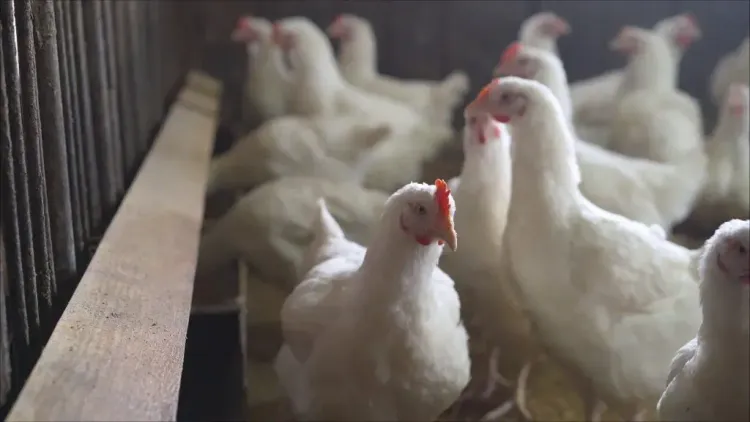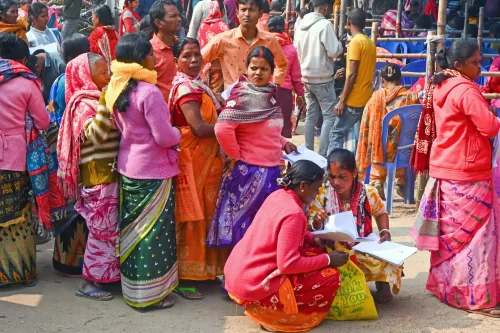Bird Flu: Indian Government Mandates Poultry Farm Registration and Increased Surveillance

Synopsis
Key Takeaways
- Mandatory registration of poultry farms is now required.
- Enhanced surveillance measures are essential.
- Stricter biosecurity protocols must be implemented.
- A predictive modeling system for early disease detection is needed.
- Research for an indigenous HPAI vaccine is underway.
New Delhi, April 5 (NationPress) In light of the increasing cases of bird flu across the nation, the Union Government has mandated the registration of poultry farms and emphasized the importance of enhanced surveillance to combat avian influenza.
A crucial meeting held in New Delhi and led by Alka Upadhyaya, Secretary at the Department of Animal Husbandry and Dairying (DAHD) under the Ministry of Fisheries, Animal Husbandry and Dairying, formulated a comprehensive three-tier strategy focusing on stricter biosecurity, vigilant surveillance, and compulsory registration of poultry farms.
The strategy includes more stringent biosecurity measures, which require poultry farms to improve hygiene practices, regulate farm access, and adhere to rigorous biosecurity protocols to reduce infection risks, as well as intensified surveillance and mandatory farm registration to bolster disease monitoring and management,” the ministry indicated.
“All poultry farms are required to register with their respective state animal husbandry departments within a month. The government has called on stakeholders in the poultry sector to ensure complete adherence to this directive,” it further stated.
“Safeguarding our poultry industry is vital for ensuring food security and supporting rural livelihoods. Robust biosecurity, scientific surveillance, and responsible practices within the industry are crucial in our battle against bird flu,” Upadhyaya remarked.
Moreover, she highlighted the necessity for establishing a predictive modeling system for early warnings and environmental surveillance, which would facilitate proactive disease identification and response, thereby minimizing outbreak risks and safeguarding the poultry sector.
Avian Influenza is a highly contagious viral illness impacting birds, with occasional transmission to mammals. Since its initial detection in India in 2006, outbreaks have been consistently reported across various states.
Significantly, Highly Pathogenic Avian Influenza (HPAI) has affected eight states since January—Maharashtra, Chhattisgarh, Jharkhand, Andhra Pradesh, Madhya Pradesh, Telangana, Karnataka, and Bihar.
At present, there are six active outbreak zones in Jharkhand, Telangana, and Chhattisgarh across the country.
In addition to poultry, other animal and bird species impacted include tigers, leopards, vultures, crows, hawks, egrets, pet cats, demoiselle cranes, painted storks, and jungle cats.
Meanwhile, the DAHD has authorized the use of the H9N2 (Low Pathogenic Avian Influenza) vaccine, developed by ICAR-NIHSAD in Bhopal, which is now commercially accessible.
A national study will assess the efficacy of LPAI vaccination. The meeting also thoroughly explored the potential approval for a vaccine against Highly Pathogenic Avian Influenza (HPAI) in India.
The meeting recommended conducting comprehensive science-based evaluations to gauge the viability of HPAI vaccination in the country. Research initiatives have also commenced to create an indigenous HPAI vaccine following global best practices.










